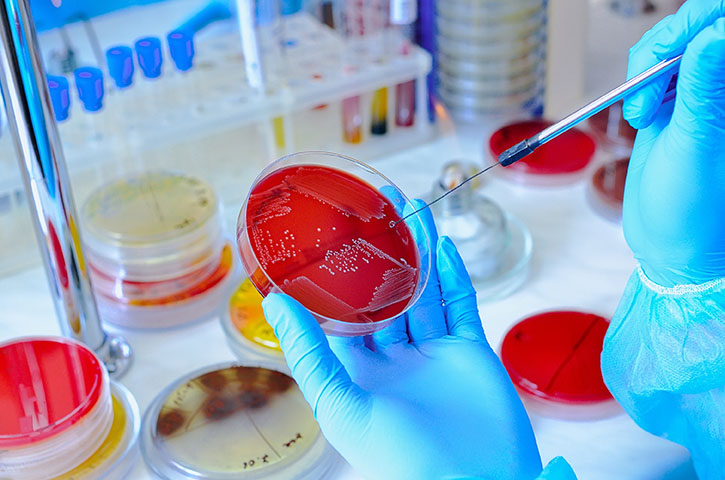
microbiology
Definition
Microbiology is the study of microscopic organisms, such as bacteria, viruses, fungi, and algae. Microbes are found everywhere, in the air, water, soil, and even inside our bodies. They play an important role in the environment and in our health.
Bacteria are single-celled organisms that are found in all environments. They can be helpful or harmful to humans. Some bacteria help to break down food in our digestive system, while others can cause diseases like strep throat or food poisoning.
Viruses are even smaller than bacteria. They are not technically alive, but they can reproduce inside living cells. Viruses can cause a variety of diseases, including the common cold, the flu, and HIV/AIDS.
Fungi are multicellular organisms that are found in soil, water, and on plants. Some fungi are helpful, like the mushrooms that we eat. Others can cause diseases like athlete's foot or ringworm.
Algae are simple plants that live in water. They are important producers of food and oxygen.
Microbiology is a vast and complex field of study. Scientists are constantly learning new things about microbes. This knowledge is helping us to develop new ways to prevent and treat diseases and to improve our understanding of the environment.
How can the word be used?
The microbiologist used a variety of techniques to study the bacteria in the soil.

Different forms of the word
Noun: The study of microbes, which are very small organisms that can only be seen with a microscope.
Adjective: Relating to microbiology.
Verb: To study microbiology.
Etymology
The word "microbiology" comes from the Greek words "mikros" (small) and "bios" (life) and the suffix "-logy" (study of). The word "microbiology" was first used in English in the 19th century.
The literal meaning of the word "microbiology" is "the study of small life". This is because microbiology is the study of microbes, which are very small organisms that can only be seen with a microscope.
Question
What is microbiology?
AQA Science Exam Question and Answer
Question:
Explain the significance of microbiology in our understanding of infectious diseases and the development of medical treatments.
Answer:
Microbiology, the study of microorganisms, is instrumental in deepening our knowledge of infectious diseases and paving the way for effective medical interventions. Microorganisms, including bacteria, viruses, and fungi, play a crucial role in health and disease.
Microbiology enables us to identify and characterise pathogens that cause infectious diseases. By studying the structure, behaviour, and genetic makeup of these microorganisms, scientists can understand how they infect and harm the human body. This knowledge is fundamental for developing accurate diagnostics and targeted treatments.
Moreover, microbiology plays a pivotal role in vaccine development. Through the study of microorganisms' antigens and immune responses, researchers can create vaccines that stimulate immunity without causing disease. Vaccines have been instrumental in preventing numerous deadly infections.
Antibiotics, another critical medical advancement, are products of microbiology. By studying bacteria and their interactions, microbiologists have discovered and developed antibiotics to combat bacterial infections. However, the emergence of antibiotic-resistant strains highlights the ongoing need for microbiological research to tackle evolving health challenges.